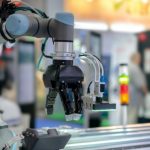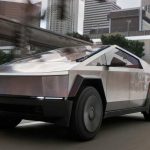A&K Robotics has enlisted Delta-Q to provide battery chargers for its autonomous mobility pods, aiming to enhance sustainable urban mobility in British Columbia. The Vancouver-based firm plans to deploy these self-driving pods in airports, metropolitan areas, and transit hubs. The compact robotic units come equipped with advanced 360º and 3D sensing systems and are managed via CruzFleet, A&K’s cloud-connected fleet management software.
Expanding Autonomous Mobility
Historically, A&K Robotics tested its Cruz Mobility pods at Hartsfield-Jackson Atlanta International Airport in 2022, achieving impressive results, particularly in aiding travelers needing assistance. Over the last year, the company secured additional funding and expanded its functionalities and collaborations with more airports, underlining sustained progress in autonomous systems. Delta-Q, known for its role in providing battery solutions for electric drive vehicles, aligns with A&K’s sustainability mission, further solidifying this partnership.
Strategic Partnership
Delta-Q, a specialist in designing and manufacturing battery chargers, offers solutions for both lead-acid and lithium batteries. Its collaboration with A&K Robotics focuses on making electrification and automation more accessible globally. Sarah MacKinnon, CEO of Delta-Q Technologies, expressed enthusiasm for the partnership.
“By combining our expertise and leveraging the support of ZAPI GROUP, we aim to power the future of electrification, making urban mobility more sustainable and attainable. We are thrilled to be a part of shaping global, meaningful innovation with a fellow BC company.”
Cruz Mobility pods, A&K’s flagship model, are purpose-built for high-traffic environments like airports. These pods can be dispatched seamlessly via CruzFleet, showcasing their potential to revolutionize mobility for people with reduced mobility. Matthew Anderson, CEO and co-founder of A&K Robotics, believes that the partnership with Delta-Q is a significant step towards driving regional and global economic and sustainability improvements.
“We see great potential in the future of autonomous equipment and the micro-mobility market, and we know BC is a hub for innovation in this sector. Our work advances critical environmental initiatives and improves experiences for individuals with reduced mobility,” Anderson said.
In recent years, advancements in autonomous mobility technologies have been marked by significant milestones, such as the successful tests in major airports and securing strategic funding rounds. Compared to earlier stages where the focus was primarily on getting the technology right, current developments emphasize scaling, functionality enhancement, and wider deployment. The collaboration with Delta-Q is a testament to this shift towards practical, large-scale applications.
Delta-Q’s expertise in battery technology, combined with A&K Robotics’ focus on autonomous mobility, presents a promising outlook for the future of sustainable urban transportation. The potential for these autonomous pods to improve accessibility and mobility in crowded environments is significant, particularly for individuals with reduced mobility. By integrating advanced sensing systems and real-time fleet management software, A&K Robotics aims to set a new standard in autonomous transportation solutions.










